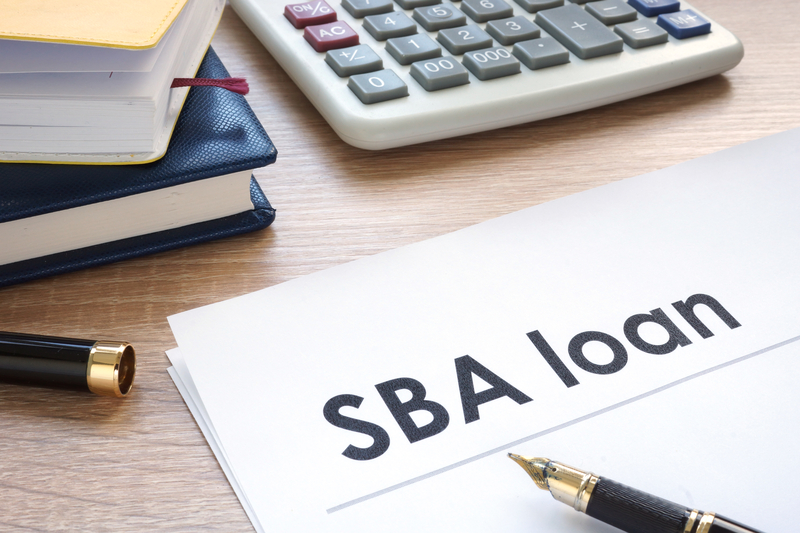Scams and rip-offs related to selling a business range from identity theft to literally stealing your business. Here’s a list of some common scams and rip-offs to watch out for when you sell your business. The best way to avoid these risks is to engage a professional and licensed Business Broker in California to represent you in the sale of your business and guide you through the process.
- Identity Theft
A seemingly interested buyer may ask to see your financial statements, tax returns, bank statements, etc before they make an offer. Their story will sound logical, “I need to see the financial details before I can make an offer”, but this is not how a transaction is done if you are working with a professional Business Broker.
This level of detail is provided after an offer has been made, accepted and Due Diligence has commenced. Business Brokers prepare an Offering Memorandum or CIM (Confidential Information Memorandum (prospectus) that includes a financial summary of the business that does not contain any personal information.
A professional business broker requires prospective buyers to sign a Confidentiality Agreement and complete a Buyer Profile which includes information on their financial position and other personal details before any information is provided about the business. This protects the confidentiality of the sale as well as eliminating the would-be frauds (they never want to provide any detailed information) and a good broker can spot them.
If you are selling your business yourself make sure you vet and qualify prospective buyers carefully before giving them any confidential information.
When you do provide information make sure you redact private information such as social security numbers, personal information, account numbers, etc. Financial details should not be provided until after a written offer has been accepted and due diligence on the sale of your business would start after the offer has been accepted. - Business Valuation Scams & How to Sell Your Business Seminars
Over the years there have been several companies with very polished sales pitches offering to sell your business, often at a much higher price than you dreamed was possible. The pitch is very polished and generally goes like this. We have thousands of buyers looking for businesses like yours…and to sell it the first thing we need is a business valuation, some may say a marketing package or prospectus, and the cost for the business valuation is $20,000 to sometimes as high as $50,000. The price varies according to how much they think you can afford.The pitchman has a very convincing story and will offer a “discount” if you sign NOW. The promised stream of buyers will never materialize and if you press them they’ll produce a list of “buyers“ that looked at your business. I spoke with one of our clients that spent $20,000 on the valuation and marketing package and after he saw no apparent activity he asked for a list of buyers and actually tried calling them. He did reach a couple and they weren’t real buyers. He pressed the company again and they sent him another list of buyers. Needless to say, he didn’t get his money back and basically threw away $20,000.Read more in the blogs below…Buyer Beware: Don’t be a Victim of Business Valuation Seminar Fraudhttps://www.kcapex.com/business-valuation-seminar-fraud/embed/#?secret=V2NMExsT7a#?secret=UgnKXmu1qxFour Scams that Can Impact Your Small Businesshttps://www.corporatespending.com/4-scams-can-impact-small-business/(scroll down to last paragraph – Valuation Scams) - Unlicensed-Out of State Advisors with Low Commissions & Upfront Fees
Business Brokers in California, and many other states, are required to be licensed by the state. In California, Business Brokers are licensed by the California Department of Real Estate which requires each Business Broker office to have a licensed Broker and the agents must also be licensed.
Licensed Brokers must follow state regulations, have background checks when they are licensed, and most are members of professional associations such as the IBBA (International Business Broker Association) or CABB (California Association of Business Brokers).
Unfortunately, licensing is not strictly enforced in many states, including California, and unlicensed “advisors” actively solicit business owners to sell their businesses. These companies have a good pitch, offering lower commissions with an upfront fee for either a valuation or marketing package. This is how they make their money, on upfront fees, not on actually selling businesses!
The great deal on the lower commission isn’t so great when you end up paying thousands of dollars for a business valuation or marketing package and months later your business hasn’t sold, you’re out that money, and that out-of-state advisor has moved on to the next target. - Quick Stock Sale – a slick trick to steal a business
This one is not as common but potentially the most dangerous. A prospective buyer will approach a seller with an offer for a quick close, perhaps even a full price or very attractive offer and they’re even willing to do a stock sale which will save you a lot in taxes! Sounds great, right?
The hook is that it is a shrewd scam to get your company for nothing, literally stealing your company! There are a few variations on how it may play out, but all of them result in closing with no actual cash out of pocket from the buyer. Most are a clever shell game where it looks like they are putting money in but actually get it all back and then some. They do this by having a low down payment (maybe no down payment after A/R, assumption of liabilities, and other credits), and after closing leave credit cards, loans, and other liabilities in your name. After closing they max out lines of credit, collect the A/R, don’t pay the bills, and disappear. Sometime later you start getting calls from creditors looking for payment from you – and you thought you sold the company!
Below are two real-life examples of these scams…
http://acquisitionadvisors.com/articles-for-sellers/2009/05/beware-of-business-buyer-scams/ - Earnouts
Earnouts are a transaction structure where some of the value of the company is paid over time as specific financial goals are met. In some transactions earnouts are necessary, but they can lead to problems if they are not structured properly.
The risk for the seller is that if the buyer fails to achieve these goals then the seller loses the value tied to that metric. So your purchase price is not guaranteed, if the business misses those future goals your value goes down, sometimes to zero on the balance due.
An experienced Business Broker knows when an earnout is necessary and cannot be avoided and equally important knows how to structure it to minimize your risk. - Large Seller Notes = HIGH risk
If your business qualifies for SBA financing and a buyer insists on a larger seller note because they “want to avoid the delays and hassle of working with an SBA lender” beware!
SBA financing is prime rate + 3% maximum over a ten-year term. A typical seller note typically at a rate above SBA interest rates and over 5 years.
Clearly, SBA financing is the better option for the buyer with much lower debt service. So why would a buyer want a Seller Note with much higher monthly payments?
In our experience, if a buyer is avoiding SBA financing and insisting on a Seller Note it is typically for one of the following reasons:
Typical reasons a buyer would want to avoid SBA financing:
a) They won’t-can’t qualify due to poor credit or insufficient cash down payment.
b) They don’t want to risk their personal credit and collateral and if they can get you (the seller) to carry the note they have little risk and can walk away if things go badly down the road.
c) The worst-case scenario is they don’t intend to pay the note and want to get the business with as little cash down as possible and then refuse to pay the note for a reason they cook up later. You can engage an attorney to sue them and try to get paid but it is expensive, takes a long time, and the success rate for collecting is not high.
At Pacific Business Sales, we are not fans of large seller notes, which is why our preferred financing method is SBA financing. SBA lenders often require a 10% Seller Note which means at closing you will receive 90% of the transaction value less closing costs and commission. - Upfront Fees from Brokers or Advisors
Professional Business Brokers generally do not charge upfront fees. In fact, it is customary for there to be no upfront fees for the sale of small to mid-sized businesses with upfront fees only coming into play on transactions valued at over $10 million.
Your Business Broker’s commission is paid from the Seller’s proceeds at the close of escrow. If your business broker is asking for upfront fees on a transaction valued under $10 million you should shop around, and also check their licensing to see if they are a licensed business broker.
At Pacific Business Sales we do not charge any upfront fees and we offer a comprehensive free Market Value Analysis (that’s right, you don’t need to pay for a “valuation”), and we pride ourselves in being the best business broker to help you sell your business as evidenced by 47 five star reviews!





